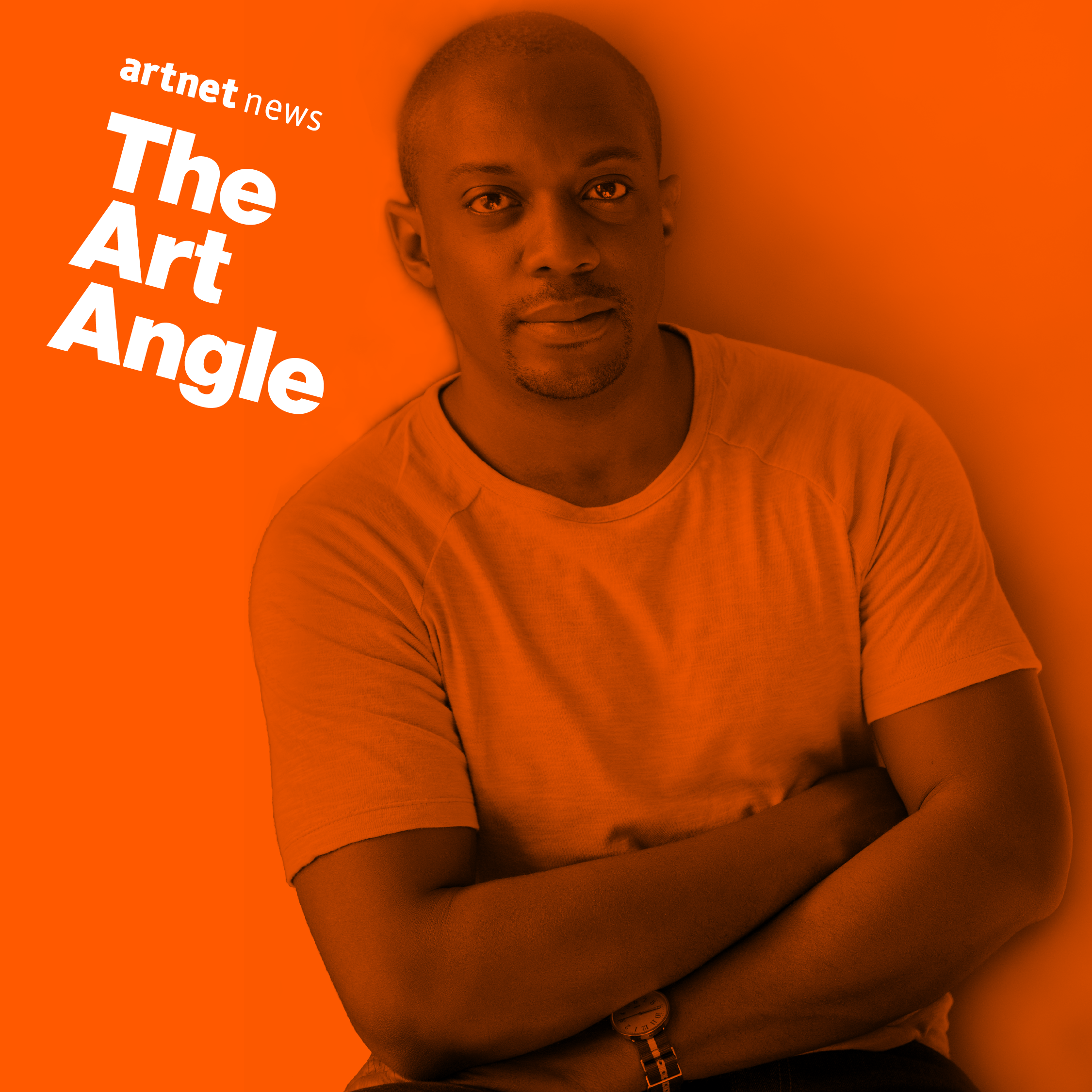
Welcome to the Art Angle, a podcast from Artnet News that delves into the places where the art world meets the real world, bringing each week’s biggest story down to earth. Join host Andrew Goldstein every week for an in-depth look at what matters most in museums, the art market, and much more with input from our own writers and editors as well as artists, curators, and other top experts in the field.
Hank Willis Thomas is a busy man. The 44-year-old photographer, sculptor, filmmaker, and writer was already a force within the rarefied world of visual art before he decided to embrace politics on a large scale. But during the landmark presidential race of 2016, Thomas and fellow artist Eric Gottesman co-founded an “anti-partisan” political action committee called For Freedoms to empower artists to channel their creative energy into civic engagement. Along with facilitating major public artworks such as murals and artist-designed billboards, For Freedoms has since grown into a larger nonprofit organization that has held townhall meetings, organized voter-registration drives, and even assembled its own multi-day national Congress in Los Angeles. Not bad for a side hustle.
The son of renowned art historian and photographer Deborah Willis, Thomas first rose to prominence for his early photography, which used the visual language of advertising to address systemic injustices such as the exploitation of professional athletes, the scourge of mass incarceration, and the original sin of American slavery. Years before the latest wave of activists began toppling statues of Christopher Columbus, Robert E. Lee, and other problematic figures in US history, Thomas also began questioning the validity of such monuments with his own large-scale sculptures, often creating alternatives to honor the individuals whose sacrifices have been overlooked by mainstream historical narratives.
Thomas once said that his personal experiences prompted him to create art that could “change the world in a more intentional way,” and now more than ever, he is doing just that. Through July 16, he and his Los Angeles gallery, Kayne Griffin Corcoran, are teaming with Artnet Auctions to present “Bid for Peace,” a single-lot sale of Thomas’s striking sculpture Peace (2019). All proceeds from the auction including the buyer’s premium will be donated to G.L.I.T.S, Gays and Lesbians Living in a Transgender Society, a non-profit organization that protects the rights of transgender sex workers.
A few days before the opening of “Bid for Peace,” Thomas joined Andrew Goldstein on the Art Angle to discuss the evolution of his studio practice, artists’ importance to bringing about civic transformation, and whether you might someday see his own name on a ballot near you.
Listen above and subscribe to the Art Angle on Apple Podcasts, Spotify, SoundCloud, or wherever you get your podcasts. (Or catch up on past episodes here on Artnet News.)
Listen to Other Episodes:
The Art Angle Podcast: The Unsettling Truth Behind What Columbus Monuments Really Stand For
The Art Angle Podcast: Four Artists on the Front Lines of the George Floyd Protests
The Art Angle Podcast: The Rise and Fall of Anne Geddes, Queen of Baby Photography
The Art Angle Podcast: China’s Most Adventurous Museum Director on Global Art’s Post-COVID Future
The Art Angle Podcast: YouTube’s No-Nonsense Art Guru on How to Unlock Your Inner Artist
The Art Angle Podcast: How Marina Abramović Became the Center of a Vast Satanic Conspiracy Theory
The Art Angle Podcast: Ai Weiwei on the Coronavirus, China, and Art’s New Role